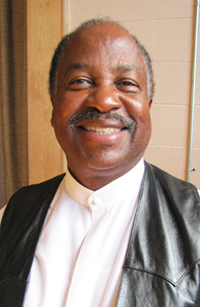
By Lafe Tolliver, Esq
Guest Column
Well, it is that time again for a simple quiz to make sure that my faithful and dear readers are actually putting in the time to digest my statements of reason and wisdom! (Yes, you can laugh out loudl).
But, seriously, please take the below quiz and see how you can personally improve the
management of the capital accumulations that are in your local banks (aka: The local Black churches in Toledo).
Remember, some of the quiz questions are both inspirational and aspirational in their desired effect.
If you do not attend a Black church, you should immediately start attending but, in all fairness, you should not take this quiz. If it is found out that you did in fact take this quiz and you are not a member of a local church, you will receive the plague of a grinning Ron DeSantis invading your dreams every night for the next 30 days.
QUESTION ONE: Which of the following acts should your local bank (Black church) take in managing their deposits (i.e., your tithes, offerings, and gifts) to maximize its return.
(1) checking account only
(2) savings account only
(3) money market accounts
(4) local real estate investments and business loans
(5) re-purposing vacant buildings
(6) all the above
QUESTION TWO: Should your local bank (your church) be engaged in any of the following undertakings:
(1) lavish pastor appreciation gifts and dinners (yes) (no)
(2) new car every other year for the pastor (yes) (no)
(3) financing a costly new facility (yes) (no)
(4) expense accounts for senior leadership (yes) (no)
(5) inviting in costly special guests or speakers (yes) (no)
QUESTION THREE: If you were presented with a plan by which your local bank (your church) funds could be combined with other local banks (Black churches) and managed by a professional and insured group, would you vote for it? (yes) (no).
QUESTION FOUR: Should the Black church accumulate wealth for both the furtherance of the gospel and to uplift the people in its surrounding area? (yes) (no).
QUESTION FIVE: Would you vote at a church meeting for a resolution that your local bank (your Black church) would set aside at least 10 percent of its weekly gross income to finance a wealth accumulation fund? (yes) (no).
QUESTION SIX: Do you see in your neighborhood matters that could be improved with the use of targeted funding? (yes) (no).
QUESTION SEVEN: Are you familiar with the phase “collective economics.” (yes) (no).
QUESTION EIGHT: At your local bank (Black church), are you able to request and review the financial income and expenses of its operation. (yes) (no).
QUESTION NINE: Considering how your local bank (Black church) is managing its finances, how comfortable are you in making a financial bequest to your local bank via your will?
(1) comfortable.
(2) somewhat comfortable.
(3) Ido not know about this method of transferring wealth via a will.
QUESTION 10: When you experience having “extra” income, do you immediately think about donating some of it to your local bank (Black church)?
(1) yes.
(2) no.
(3) never thought about it in that way.
(4) need to know more about how it would be spent.
QUESTION 11: Choose any and all of the below regarding why your local bank (Black
church) is not engaged in collective economics:
(1) pastor or elders are simply not informed about such matters.
(2) lack of trust between Black churches to share economics with each other.
(3) the members of the congregation have negative images of past failures of
Black churches working together regarding accumulating money.
(4) it is something that the Black churches should not be doing
(5) need an experienced financial person to spear head such an undertaking and I would follow along.
Well, dear readers, there you have it. Hopefully, the questions will generate more questions as you ponder about the financial health of the many local banks (Black churches) in Toledo.
If you are uncertain about what to do next, simply read and read more about Black economics in America and how people of color are regimented into not being able to fully maximize their potential, be it red lining, predatory lending practices, lack of job mobility, disparate income for similar work done by White Americans and systemic racism, both overt and covert.
Contact Lafe Tolliver at tolliver@juno.com
